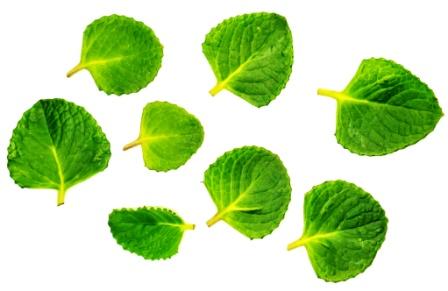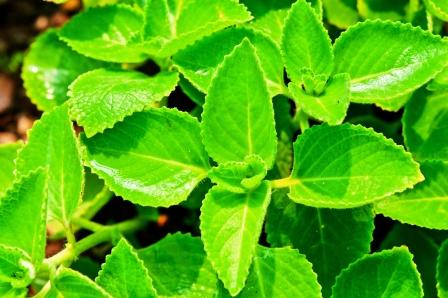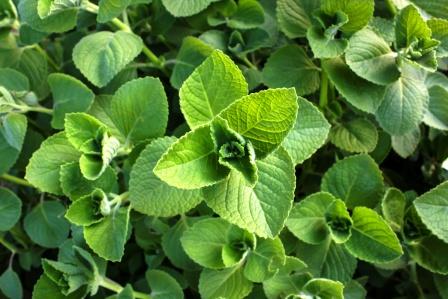Country borage (Parnayavani) Uses, Research, Remedies, Side Effects
Parnayavani- Plectranthus amboinicus is a plant mentioned in Ayurveda for the treatment of cough, asthma, headache, indigestion, diarrhea and intestinal worms.
Latin name- Coleus amboinicus Lour. Plectranthus amboinicus
Family- Labiatae (Tulasi kula)

Table of Contents
Vernacular names
Names in different languages:
Hindi name- Patta ajwayin, Amroda, Patherchur , pathercheer
English name- Country borage, Indian mint, Indian borage
Bengali name- Pathar choor, Paterchur,Amalkuchi
Gujarathi name- Ovapan
Kannada name- Dodda patre, Sambrani, Sambrani soppu
Malayalam name- Panikoorka
Marathi name- Pan ova
Tamil name- Karpooravalli, Kurpurvallai
Telugu name- Karuvacru, Suganda vallekam, Karpoorvalli
French name :Coleus d’Afrique , Plectrianthus aromatique
German name : Cubanischer oregano,Jamaican Thymian
Japenese name Koreusu amboinikusu , Kuuban oregano
Malay name : Daun kucing (Indonesia) , Daun Kambing(Indonesia)
Russian name : Plektrantus aromatryi
Spanish name : Oregano
Vietnamese name:Tan day le
Mah :Pan-ova
Gujarathi name – Ovapana
Chinese name – Zuo Shou Xiang
Sanskrit synonyms
Chornika, Karpooravalli, Sugandhi – Plant is aromatic
Parnika, Himasagar, Ashmari bheda
Parnayavani is a small plant growing to a height of 1- 2 feet. The stem is fleshy but has less strength. The leaves are little oval, thick, fleshy and have hair-like structure beneath with strong odor. The flowers are small, purple colored and are seen in the month of May- July. The plant is available and cultivated all over India in the temperate climate.

Properties, part used, dosage
Properties:
Rasa (Taste) – Katu (Pungent), Tikta (Bitter)
Guna (Qualities) – Laghu (Light for digestion), Ruksha (Dry in nature), Teekshna (Strong)
Vipaka – Katu (Undergoes Pungent taste after digestion)
Veerya (Potency) – Ushna (Hot)
Karma (Actions) – Kaphavata shamaka (reduces vitiated kapha and vata dosha)
Pharmacological action – Diuretic, Hepatoprotective
Part used- Leaf
Dosage- 5 to 10 ml of juice
Powder – 3 -6 g
Decoction – 30 – 60 ml
Hot infusion – 50 ml
Chemical constituents
Chemical constituents of Plectranthus amboinicus
The aerial parts of the plant yield an essential oil (0.1%) which contains thymol (79.5%); whereas in leaves carvacrol and camphor are major constituents. Leaves also contain a large amount of oxalacetic acid, flavonoid, cirsimaritin and beta- sitosterol.

तीक्ष्णा पर्णयवान्युष्णा कटुतिक्ता रसे लघुः । दीपनी पाचनी रुच्या मलसंग्राहिणी परम् ॥
अग्निमान्द्ये यकृद्रोगे ग्रहण्यामुदरक्रिमौ । विषूचिकायामश्मर्या मूत्रकृच्छ्रे च शस्यते॥ ( द्र.गु.वि)
Uses, Indications
Uses of Indian borage:
- The juice from the crushed leaves of Parnayavani is given in a dose of 5 -6 ml with honey to treat cough and rhinitis.
- The fresh juice of Coleus amboinicus is given in a dose of 10 ml with hot water to treat intestinal worms.
- The juice of the plant is given with juice of ginger to improve appetite and treat indigestion.
- The paste and juice of the leaf is given internally to treat renal and urinary calculi.
- The juice of Parnayavani is given with decoction of Kutaja (Holarrhena antidysenterica) to treat diarrhea and irritable bowel syndrome.
- The paste of the leaf is applied over the forehead to treat headache.
- Expressed juice of leaf is applied around the orbit to relieve the pain in conjunctivitis
- Juice is mixed with sugar is given to children in colic, in asthma, chronic cough, strangury, calculus, gonorrhea, piles and dyspepsia
- Crushed leaves are used as local application to the head in headache and to relieve the pain and irritation caused by centipedes
- Expressed juice is applied around the orbit to relieve the pain in conjunctivitis
- The drug is also useful in cardiac disability, cough, breathlessness, hiccups, dysuria and urinary calculi
- Expressed juice of leaves are carminative and used in dyspepsia
- The drug is used in vatavyadhi(akshepaka, apatantraka).It is also considered as useful in hridroga
- This drug is a diuretic herbal agent. Its leaves have a pleasant odor and pungent taste
- The drug is quite useful in disorders of the digestive system,particularly gastrointestinal complaints.
Adverse effects
Adverse effects of country borage:
Adverse effects of country borage:
No adverse effect is known after the use of parnayavani. Some people suffer from burning sensation of the tongue and esophagus after the intake of juice from the leaf.
Interaction with medicines, supplements
Can this be used while taking Homeopathic medicine?
Yes. This product does not react with homeopathic medicine.
Can this medicine be continued while taking supplements like multivitamin tablets, Omega 3 fatty acids etc?
Yes. Generally, this product goes well with most dietary supplements. However, if you are taking more than one product per day, please consult your doctor for an opinion.
With western
medicines
Seek your
doctor’s advice if you are taking this product along with other western
(allopathic / modern) medicines. Some Ayurvedic herbs can interact with modern
medicine.
If both Ayurvedic and allopathic medicines are advised together, then it is
best to take Allopathic medicine first, wait for 30 minutes and then take the
Ayurvedic medicine.
Ayurvedic medicines
Ayurvedic medicines containing Coleus amboinicus
Byekof syrup: Byekof Syrup is a proprietary Ayurvedic medicine useful to treat cough, asthma and other respiratory disorders.
Grahanimihira taila: Grahanimihira Taila is an Ayurvedic oil used in the treatment of diarrhea, fever, cough, etc. This oil is used both for external and internal administration.
Research
Research articles related to Coleus amboinicus:
Anti- microbial study: Ethanolic extract of Coleus amboinicus leaves were used for study of antimicrobial activity. The antimicrobial activity was evaluated against six bacterial strains with four different concentrations by detecting minimum inhibitory concentration and zone of inhibition. The highest antibacterial activity was observed in Salmonella typhi at a concentration of 1000µg/ml. The lowest antibacterial activity was observed in Staphylococcus aureus at a concentration of 250µg/ml of ethanolic extract of Coleus amboinicus leaf extract.
Anti- bacterial and Anti- fungal action: The aim of this study was to evaluate anti-bacterial anti-fungal activity of six Lamiaceae family coleus plants based on their traditional uses (breast-milk stimulants) from two Asian countries. All leaf extracts showed activity at least against one strain of bacteria and the result shows that there were significant differences (p<0.05) between the activities on microorganisms. The minimum inhibitory concentration of all leaves extracts ranged from 1.0 to 2.0 mg/ml in inhibiting the growth of S. aureus, E. coli, P. aeruginosa and B. subtilis. This study shows that the coleus plant leaves can be used as anti-bacterial anti-fungal agents apart from the breast-milk stimulation properties.
Anti- oxidant and cytotoxic action: The aetylacetate and ethanolic extracts of Plectranthus amboinicus, (Lour.) Spreng. Leaves were found to exhibit antioxidant activity with IC50 value 350.74 µg/mL and 281.26 µg/mL by DPPH method. The ethanolic and aetylacetate extracts showed a high antioxidant activity by ß-Carotene-Linoleic Acid Method. N-hexane and aetylacetate extracts showed potent cytotoxic effects on MCF7 with IC50 63.644 µg/mL, 7.647 µg/mL respectively.
Classical categorization
Priya Nighantu- karpooradi varga
Scientific classification
Kingdom: Plantae
Order: Lamiales
Family: Lamiaceae
Genus: Plectranthus
Species: P. amboinicus
Controversy
Parnayavani is a controversial source of Pashanabheda (Berginea ligulata)
Author: Dr.B.K.Prashanth M.D (Ayu), Ph.D
E mail: [email protected]
Systemic Action (Sthanika Karma)
External – Anti inflammatory and Analgesic. External application is indicated in Headache and Animal poisoning.
Nervous System – Indicated in conditions like tremor, intoxication etc.
Digestive system – Improve taste, Carminative, digestive, Liver stimulant, Absorbent. Indicated in Liver diseases, Anorexia, Loss of appetite, Constipation, Abdominal cramp, Diarrhea, Malabsorption syndrome, Helminthiasis etc. It is one of the best medicines to prevent diarrhea and vomiting.
Circulatory System – CArdiac stimulant.
Respiratory System – Indicated in chronic cough, hiccough, breathing difficulty etc.
Excretory System – Indicated in renal calculi and Dysuria.










